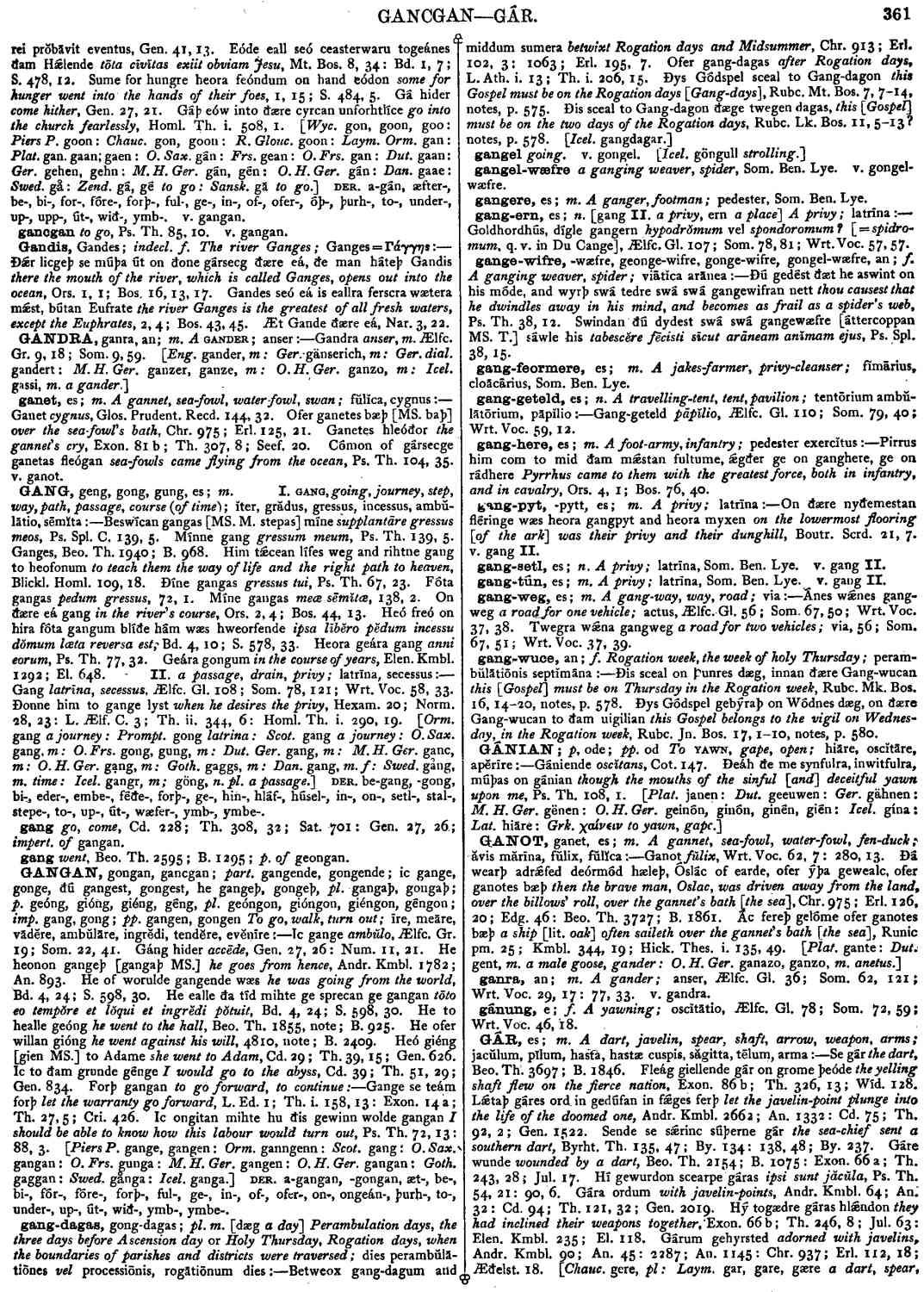GÁR
- noun [ masculine ]
-
Se gár
the dart,
- Beo. Th. 3697 ;
- B. 1846.
-
Fleág giellende gár on grome þeóde
the yelling shaft flew on the fierce nation,
- Exon. 86 b ;
- Th. 326, 13 ;
- Wíd. 128.
-
Lǽtaþ gáres ord, in gedúfan in fǽges ferþ
let the javelin-point plunge into the life of the doomed one,
- Andr. Kmbl. 2662 ;
- An. 1332 : Cd. 75 ;
- Th. 92, 2 ;
- Gen. 1522.
-
Sende se sǽrinc súþerne gár
the sea-chief sent a southern dart,
- Byrht. Th. 135. 47 ;
- By. 134 : 138, 48 ;
- By. 237.
-
Gáre wunde
wounded by a dart,
- Beo. Th. 2154 ;
- B. 1075 : Exon. 66 a ;
- Th. 243, 28 ;
- Jul. 17.
-
Hí gewurdon scearpe gáras
ipsi sunt jăcŭla,
- Ps. Th. 54, 21 : 90, 6.
-
Gára ordum
with javelin-points,
- Andr. Kmbl. 64 ;
- An. 32 : Cd. 94 ;
- Th. 121, 32 ;
- Gen. 2019.
-
Hý togædre gáras hlǽndon
they had inclined their weapons together,
- Exon. 66 b ;
- Th. 246, 8 ;
- Jul. 63 : Elen. Kmbl. 235 ;
- El. 118.
-
Gárum gehyrsted
adorned with javelins,
- Andr. Kmbl. 90; An. 45 : 2287 ;
- An. 1145 : Chr. 937 ;
- Erl. 112, 18 ;
- Æðelst. 18.
Bosworth, Joseph. “GÁR.” In An Anglo-Saxon Dictionary Online, edited by Thomas Northcote Toller, Christ Sean, and Ondřej Tichy. Prague: Faculty of Arts, Charles University, 2014. https://bosworthtoller.com/13290.
Checked: 1